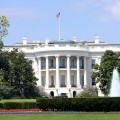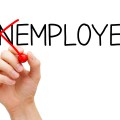 While all generations felt the impact of the Great Recession of 2007-2009, Millennials may have taken the impact the hardest.
While all generations felt the impact of the Great Recession of 2007-2009, Millennials may have taken the impact the hardest.
The recession forced many Americans born between 1981 and 1996, especially those from the graduating class of 2008, to put off major life decisions, such as home and car purchases and marriage.
The U.S. Department of Labor’s Bureau of Labor Statistics summarizes the findings of a 2014 analysis overseen by the Federal Reserve Bank of Atlanta.
They note that those missed milestones may eventually be met, but Millennials are still facing an uphill climb in making their mark on the economy courtesy of lingering unemployment among members of this generation.
Unemployment Tells a Tale
Economic advancements have been seen over the past year as the U.S. economy gains momentum and employers begin to put out help wanted signs.
Even so, members of the Millennial generation are still finding employment hard to come by and many tend to stay at lower-paying jobs when they do gain work.
Employment remains harder for workers between the ages of 25 and 34 to find than any other age bracket. In looking at that age group, the Labor Department notes that the percentage of unemployed workers is consistently above the overall joblessness rate for all workers since recovery really began to take hold.
The gap is even wider than it was in 2009. Data gleaned from the Census shows only about 63% of Millennials were working in 2012. That’s compared to a 70% rate for those aged 18 to 31 in 1990.
Causes for the Disparity
A number of factors likely come into play to explain why this generation continues to lag behind younger and older cohorts in employment. Likely contributing factors include:
- Older workers are remaining in the job market longer
- Displacement of jobs courtesy of computerization
- Limited upward mobility
- A lack of marketable skills
Complicating matters, Millennials tend to stay at lower-paying jobs when they do land positions. The Department of Labor notes the “quits rate” shows the willingness of workers to strike out for higher-paying posts by leaving current employment remains at pre-recession levels.
Economic impacts from this generation are further complicated by the massive student debt that Millennials, arguably the best-educated generation, hold.
An estimated 42% of Millennials have student loan debt compared to 17% of the 20- and 30-somethings.
The News Isn’t All Bad
The implications of the recession have taken their toll on Millennials and their overall capacity to earn, but the picture is slowly changing for the better.
While this age group continues to experience an unemployment rate that is well above the average for all U.S. workers, the tide is turning. The Department of Labor has noted a sharp decline in Millennial unemployment to its lowest level in six years.
A recent survey conducted by Bankrate.com even found that one in three Millennials report feeling more secure in their jobs while the same number also report feeling better off financially than they did a year ago.
Millennials, once employed, also seem to be rather responsible with their money. A Wells Fargo study found that some 50 percent of Millennials devote more than half their income toward paying off debt rather than accumulating new obligations.





